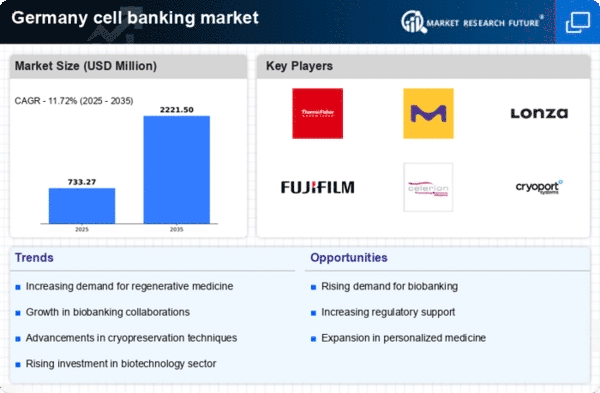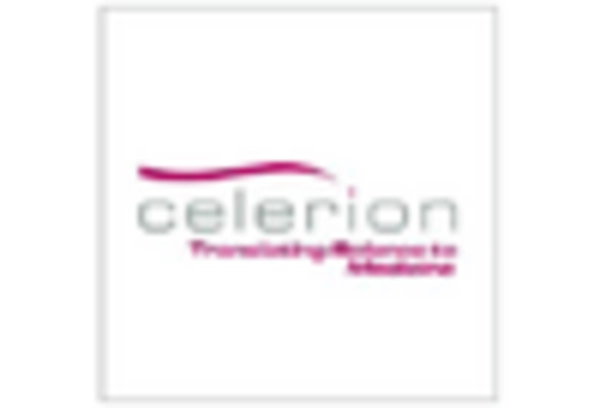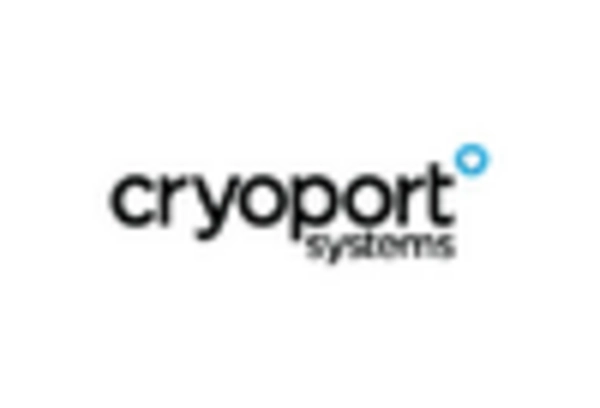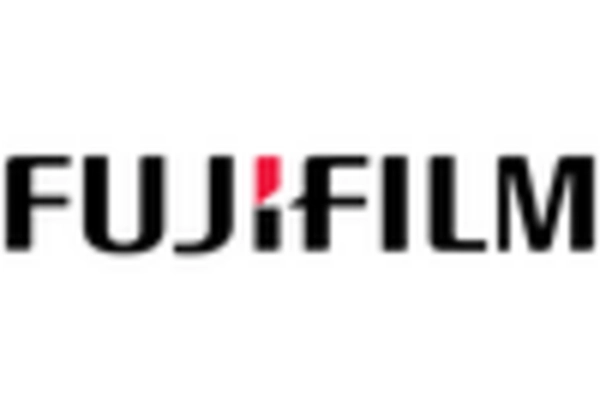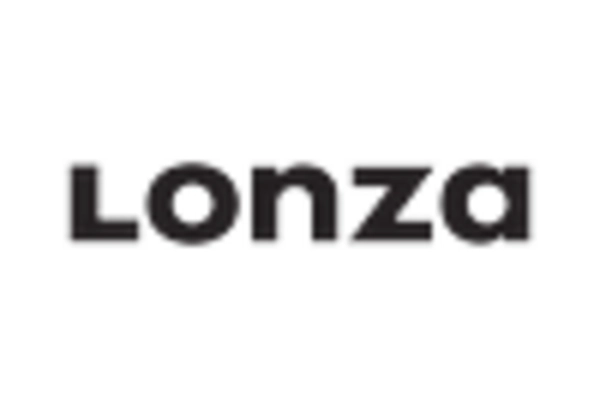Rising Demand for Biobanking Services
The increasing demand for biobanking services in Germany is a primary driver for the cell banking-outsourcing market. As the healthcare sector evolves, there is a growing need for high-quality biological samples for research and clinical applications. This trend is reflected in the projected growth of the biobanking market, which is expected to reach approximately €2 billion by 2026. The cell banking-outsourcing market is benefiting from this surge, as organizations seek to outsource their biobanking needs to specialized providers. This allows them to focus on core activities while ensuring compliance with stringent quality standards. Furthermore, the rise in personalized medicine and regenerative therapies is likely to further fuel the demand for cell banking services, creating a robust environment for outsourcing in this sector.
Growing Focus on Personalized Medicine
The growing focus on personalized medicine is reshaping the landscape of the cell banking-outsourcing market. As healthcare shifts towards tailored treatments, the demand for specific biological samples is increasing. This trend is particularly evident in Germany, where research institutions and pharmaceutical companies are investing heavily in personalized therapies. The cell banking-outsourcing market is positioned to benefit from this shift, as organizations seek to access diverse and high-quality biological materials for their research. The need for extensive biobanks that can provide specific cell types and genetic profiles is likely to drive outsourcing partnerships, enabling companies to enhance their research capabilities and accelerate the development of personalized medical solutions.
Cost Efficiency and Resource Optimization
Cost efficiency remains a significant driver for the cell banking-outsourcing market in Germany. Organizations are increasingly recognizing the financial benefits of outsourcing their cell banking operations. By leveraging external expertise, companies can reduce operational costs associated with maintaining in-house facilities and personnel. The cell banking-outsourcing market allows firms to allocate resources more effectively, focusing on research and development rather than logistical challenges. Reports indicate that outsourcing can lead to cost savings of up to 30%, making it an attractive option for many organizations. Additionally, outsourcing partners often possess advanced technologies and methodologies that can enhance the quality and reliability of cell banking services, further justifying the financial rationale behind this trend.
Regulatory Landscape and Compliance Needs
The regulatory landscape in Germany plays a crucial role in shaping the cell banking-outsourcing market. Stringent regulations governing the collection, storage, and use of biological samples necessitate compliance from organizations involved in biobanking. As a result, many companies are turning to specialized outsourcing partners who possess the expertise to navigate these complex regulatory requirements. The cell banking-outsourcing market is thus experiencing growth as organizations seek to mitigate risks associated with non-compliance. Outsourcing to experienced providers not only ensures adherence to regulations but also enhances the overall quality and integrity of biological samples. This trend is likely to continue as regulatory frameworks evolve, further driving the demand for outsourcing solutions in the cell banking sector.
Advancements in Cryopreservation Techniques
Advancements in cryopreservation techniques are significantly influencing the cell banking-outsourcing market. Innovations in freezing and storage methods have improved the viability and longevity of biological samples, making outsourcing more appealing to organizations in Germany. Enhanced cryopreservation techniques can lead to higher recovery rates of viable cells, which is crucial for research and therapeutic applications. The cell banking-outsourcing market is likely to see increased adoption of these advanced methods, as they provide a competitive edge to service providers. Furthermore, the integration of automated systems in cryopreservation processes is expected to streamline operations, reduce human error, and improve overall efficiency, thereby attracting more clients to outsource their cell banking needs.


